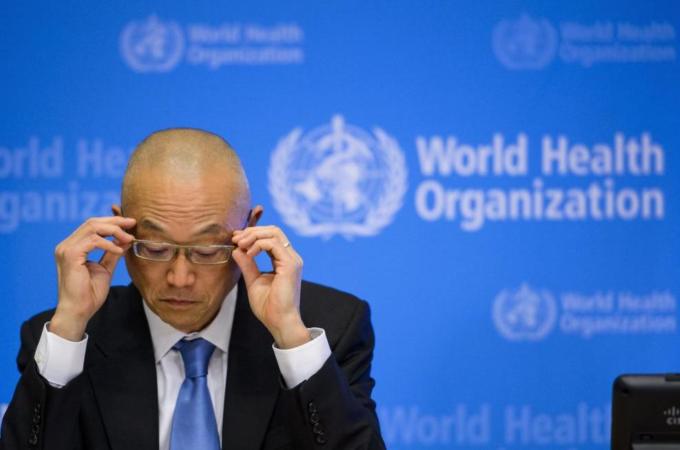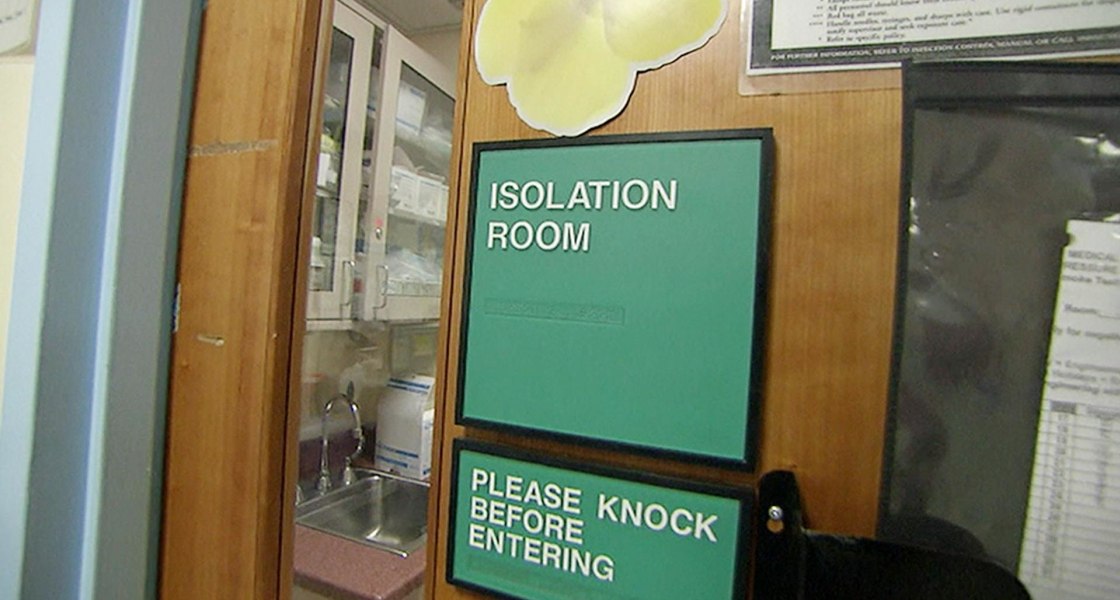 TODAY
TODAY
Second MERS Case Shows Hospitals Are Ground Zero for MERS
By Maggie Fox
The
patient started feeling ill as he sat on a packed flight from Jeddah to
London. Things didn’t get any better after he boarded another flight to
Boston, or a third flight to Atlanta, or even as he took one last
miserable leg to Orlando.
If he’d been watching the news, he should have known it was at least possible that he had MERS,
the mysterious new Middle
East respiratory virus. It’s been spreading in Saudi Arabia and has
infected more than 570 people globally, killing 171 of them. The biggest
risk factor is being a health care worker, like the patient.
Still,
he boarded multiple flights and came into an Orlando hospital without
warning he had respiratory symptoms and had come from Saudi Arabia. He
spent hours in a public emergency room, potentially exposing other
patients to his infection.
Showing
up in an emergency department without warning results in just what has
happened in Orlando — 20 health care workers in quarantine for two
weeks. Patients who were in the waiting room are being tracked down just
to be sure they know what to do if they develop cough or fever.
Two
workers who helped care for him did develop respiratory symptoms,
causing a great deal of concern, but they have tested negative for MERS.
"We feel like getting infection control is issue number one," the World Health Organization's Dr. Keiji Fukuda told a
news conference on Wednesday.
“If you get sick within 14 days of being in the Arabian Peninsula, call a doctor and tell the doctor where you traveled."
There’s
little excuse for not knowing about the possibility of infection now —
the U.S. Centers for Disease Control and Prevention is posting signs at
major airports, warning of the symptoms. “If you get sick within 14 days
of being in the Arabian Peninsula, call a doctor and tell the doctor
where you traveled,” the signs advise.
And now the World Health Organization, has too, even as it stopped short of declaring MERS a global health emergency.
CDC
has repeated this advice at regular intervals, most recently after an
Indiana man who’d been working in a Saudi hospital became the first U.S.
MERS patient. He doesn’t remember having treated anyone with MERS but
did work at a hospital in Riyadh with MERS cases.
The second patient also worked at a hospital where MERS was being treated, this one in Jeddah, his doctors said.
The
44-year-old health care worker laid low with relatives in the Orlando
area for a few days, finally feeling bad enough to go to the emergency
room at Dr. P. Phillips Hospital. He was admitted May 9, and tests
confirmed on Monday he was the
second patient to show up in the United States with MERS.
But
the professionals who treated him on Friday night already suspected he
might have MERS. Anyone coming from the Arabian peninsula with
respiratory symptoms should be considered a potential case, CDC says.
That means extreme hygiene measures, including an isolation room.
"I
have to wear a special mask called an N-95 (respirator). I have to wear
a gown and gloves. Once we get out of the room we dispose of
everything," said Dr. Antonio Crespo, infectious disease specialist and
chief quality officer for the P. Phillips Hospital.
.....
CDC announces second imported case of Middle East Respiratory Syndrome (MERS) in the United States
MERS case in traveler from Saudi Arabia hospitalized in Florida
A
second imported case of Middle East Respiratory Syndrome (MERS) was
confirmed late night on May 11 in a traveler to the United States. This
patient is a healthcare worker who resides and works in Saudi Arabia.
This case is unlinked to the first U.S. imported case of MERS reported
May 2 in Indiana. Despite this second imported case, the risk to the
U.S. general public from MERS still remains very low. Both imported MERS
cases are healthcare workers who recently worked in and traveled from
Saudi Arabia.
“This second confirmed case of MERS in a person who
worked in health care from an area of risk is not surprising,” said CDC
Director Tom Frieden, M.D., M.P.H. “To continue to strengthen our own
health security, we need to increase our global ability to support other
countries to help them find and stop threats such as MERS promptly, and
to prevent them whenever possible.”
On May 1, the patient
traveled by plane from Jeddah, Saudi Arabia to London, England, to
Boston, Massachusetts, to Atlanta, Georgia, and to Orlando, Florida. The
patient reported feeling unwell during the flight from Jeddah to London
and continued to feel unwell on subsequent flights with reported
symptoms that include fever, chills and a slight cough. On May 9, the
patient went to the emergency department of a hospital in Florida and
was admitted the same day. The patient is isolated, being well cared
for, and is currently doing well.
Because of the patient’s
symptoms and travel history, the Florida Department of Health officials
tested the patient for MERS Coronavirus (MERS-CoV), the virus that
causes MERS. Those tests were positive, and CDC confirmed MERS-CoV
infection in the patient late last night.
“Given the dramatic
increase in MERS cases in the Arabian Peninsula, we expected and are
prepared for additional imported cases,” said Dr. Anne Schuchat,
assistant surgeon general and director of CDC’s National Center for
Immunizations and Respiratory Diseases. “The reason for this increase in
cases is not yet known, but public health investigations are ongoing,
and we are pleased to have a team in Saudi Arabia supporting some of
those efforts.”
CDC and Florida health officials are not yet sure
how the patient became infected with the virus. Exposure may have
occurred in Saudi Arabia, where outbreaks of MERS-CoV infection are
occurring. Officials also do not know at this time exactly how many
people had close contact with the patient.
Federal, state, and
local health officials are taking action to minimize the risk of spread
of the virus. The hospital is using standard, contact, and airborne
isolation precautions, to avoid exposure to MERS-CoV within the
hospital.
As part of the prevention and control measures,
officials have begun reaching out to healthcare professionals, family
members, and others who had close contact with the patient to provide
guidance about monitoring their health and recommending they see a
healthcare provider for an evaluation. Public health officials are
working with airlines to identify and notify U.S. travelers who may have
been in close contact with the patient on any of the flights.
“The
rapid identification and response to this case are a reflection of all
of the work that CDC and partners have done over the past two years to
prepare for MERS entering the United States,” said Schuchat.
All
reported cases of MERS have been linked to countries in the Arabian
Peninsula. In some instances, the virus has spread from person to person
through close contact, such as caring for or living with an infected
person. However, there is currently no evidence of sustained spread of
MERS-CoV in community settings. “The risk to the U.S. general public
from MERS still remains very low,” said Schuchat.
While experts do
not yet know exactly how this virus is spread, CDC advises Americans to
help protect themselves from respiratory illnesses by washing hands
often, avoiding close contact with people who are sick, avoiding
touching their eyes, nose and/or mouth with unwashed hands, and
disinfecting frequently touched surfaces.
At this time, CDC does
not recommend anyone change their travel plans. CDC advises people
traveling to the Arabian Peninsula who work in a healthcare setting to
follow CDC’s recommendations for infection control. Other travelers to
the Arabian Peninsula should take general steps to protect their health.
Anyone who develops fever and symptoms of respiratory illness, such as
cough or shortness of breath, within 14 days after traveling from
countries in or near the Arabian Peninsula should call ahead to a doctor
and mention their recent travel.
Background
Middle East Respiratory Syndrome Coronavirus (MERS-CoV) is a virus that
is new to humans and was first reported in Saudi Arabia in 2012. So far,
including this U.S. importation, there have been 538 confirmed cases of
MERS in 14 countries. Most of these people developed severe acute
respiratory illness, with fever, cough, and shortness of breath; 145
people died. Officials do not know where the virus came from or exactly
how it spreads. There is no available vaccine or specific treatment
recommended for the virus.
For more information about MERS-CoV, please visit:
.....











 TODAY
TODAY 
